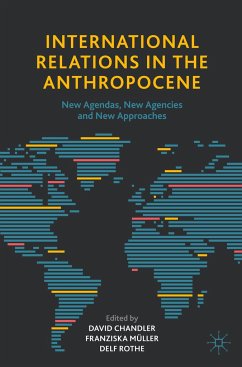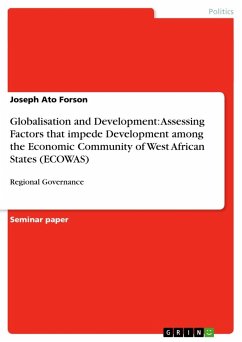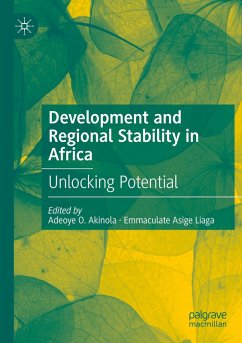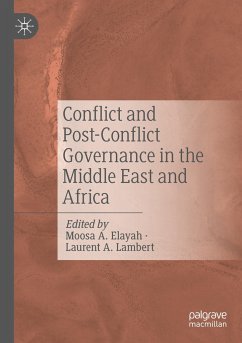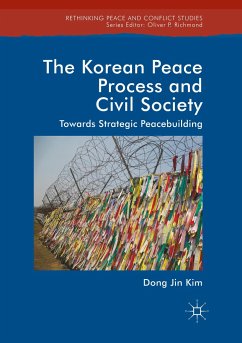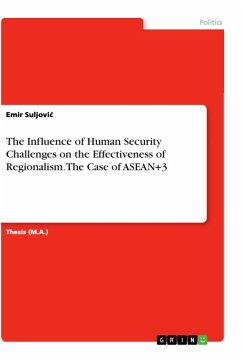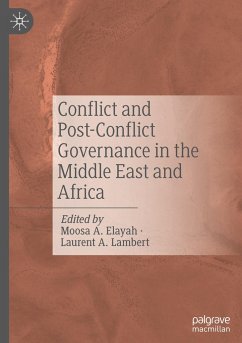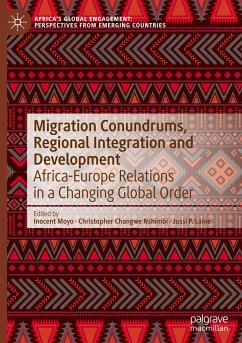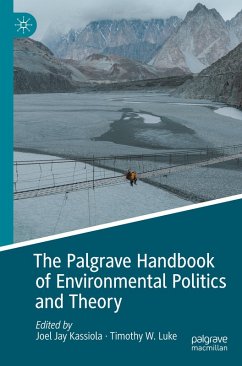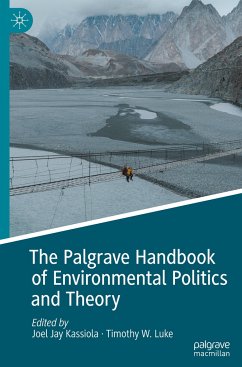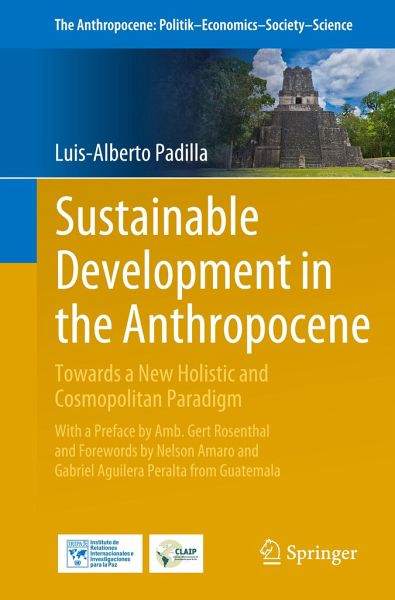
Sustainable Development in the Anthropocene
Towards a New Holistic and Cosmopolitan Paradigm

PAYBACK Punkte
21 °P sammeln!
In the Anthropocene sustainable development responds to socio-economic, environmental and political crises provoked by humankind due to global warming and the great acceleration of human intervention in ecosystems. This book introduces readers to current debates on sustainable development and to a holistic and multidisciplinary approach. Regional integration and supranational institutions are fundamental for sustainable development. The democratisation of the international system requires a new multilateralism. Global problems of demography, economic ideology of unlimited growth, the prevailin...
In the Anthropocene sustainable development responds to socio-economic, environmental and political crises provoked by humankind due to global warming and the great acceleration of human intervention in ecosystems. This book introduces readers to current debates on sustainable development and to a holistic and multidisciplinary approach. Regional integration and supranational institutions are fundamental for sustainable development. The democratisation of the international system requires a new multilateralism. Global problems of demography, economic ideology of unlimited growth, the prevailing technocratic paradigm, consumerism, problems of waste, fossil fuels, industrial food production, use of fertilisers, water management and climate change are discussed, and the importance of multilateral agreements for security, sustainable peace and development is explored. This planetary crisis may be solved by international cooperation based on the UN sustainable development goals.
This book - provides a concise synthesis of the main subjects of sustainable development studies- links development studies to multilateral diplomacy as practised by UN bodies and organisations- gives a new holistic and multidisciplinary approach to environmental and social sciences in the Anthropocene epoch.
This book - provides a concise synthesis of the main subjects of sustainable development studies- links development studies to multilateral diplomacy as practised by UN bodies and organisations- gives a new holistic and multidisciplinary approach to environmental and social sciences in the Anthropocene epoch.





